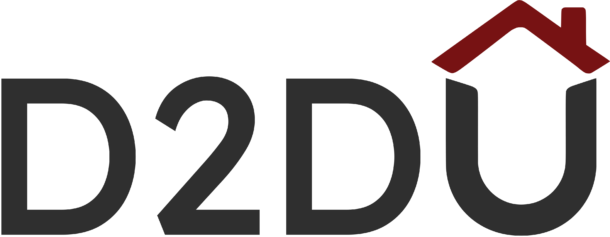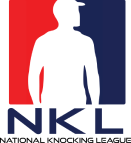Alarming statistics from the U.S. Small Business Administration revealed that 95% of American businesses shut down within the first five years of operation.
The chances of succeeding are even slimmer in door-to-door solar sales, with over 10,000 companies congesting the industry already
But does this mean zero chance of succeeding if you start a solar sales business?
Not really. The American solar industry is projected to hit a whopping $22bn by 2025.
Therefore, an operational blueprint (that combines intelligent tactics with resilience) can get you thriving in the industry despite its brazen competitiveness.
It is such a blueprint we brought Scott Hyde on this podcast to share with us.
Scott is enviably seasoned in door-to-door solar sales. Furthermore, he is the CEO of Sunobi app, a revolutionary CRM specially adapted to door-to-door solar sales.
Let us dive into some of the coveted insights Scott shares.
What mentality do you need to start and run a door-to-door solar sales business?
Scott decries the tendency of entrepreneurs to waste valuable time waiting to perfect their product before launching.
Many aspiring door-to-door solar sales entrepreneurs consistently procrastinate on launching their business because they feel they are not yet fully prepared to storm the market – that their product isn’t perfect yet.
However, the reality is that the product will never be perfect, meaning you will never start if you seek perfection.
Scott advocates starting first and learning on the go. This is synonymous with improving with progress directly on the field.
For this, he urges operational flexibility where you are willing to adapt as prescribed by the dynamism of your market.
In his unique circumstance, his company’s vision has consistently been modified (not radically altered) to be more aligned with the realities of the door-to-door solar sales space as they grew.
Reducing cancelations by improved collaboration between sales and install companies
Frictions between solar sales companies and installers are not scarce in the industry. EPCs and solar sales companies are commonly submerged in conflicts due to disparities in projected outcomes.
Sales companies would characteristically chase the best customer experience for their customers while trying to lower the installer’s red line as much as possible. This may contravene the installer’s projections and structure.
EPCs have inflated operational costs in most cases due to a paucity of automation tools streamlined for solar sales.
Such EPCs are bogged down with avoidably burdensome mechanical processes (where they incur heavy human labor costs with accompanying inefficiencies) when they would have leveraged dedicated tools to expedite the process
Installers suffer operational inefficiencies from having their project managers struggle to retrieve critical information in real-time. Frequently, they would have to consult up to four different departments to know the particular stage a customer’s project is.
So many projects get lost in this vacuum due to the absence of effective correspondence on them, leaving exasperated customers waiting months for installations and eventually canceling the project.
This is avoidable if solar sales companies and installers can deploy an integrated solar CRM that acts as an all-in-one destination for end-to-end project collaboration.
This way, sales reps and installers can have a unified CRM for correspondence and collaboration, from quotation through regulatory procedures like permitting down to property evaluation and installation.
What does the future present for door-to-door solar sales?
While many are frantic about the dynamism of the door-to-door solar sales industry (in terms of what the future holds), Scott sees reasons to be excited.
Particularly, Scott envisages aggressive technological evolutions in the space that would radically change the game for good – even making 7-days installations possible.
For one thing, Scott predicts massive advancements in battery technology. This, he says, would significantly lower the cost of batteries, with more customers opting for autonomy from the grid.
What would be the sales implication?
Well, reps wouldn’t have to solely sell solar anymore. There would be a bigger sway towards storage, and companies would get more interested in selling batteries.
We may see reps exclusively offering batteries (without solar packages) or going back to previous customers to retrofit existing battery packages.
We have seen an increased penetration of battery providers in the solar industry. Sunrun notably acquired Vivint as they sought to clamp a large fraction of the battery-based utility space.
Would solar end with the Solar Investment Tax Credit (ITC)?
Commonly, we hear people typify solar sales as the modern gold rush. Many predict that solar sales will become significantly less attractive once the ITC ends.
The ITC, we admit, is one of the biggest incentives for installers to convince homeowners of the financial feasibility of going solar.
Slated to expire in 2020, it was valuably extended to 2023.
But when the government rescinds the ITC, would solar sales crash?
Scott says a resounding NO.
Scott disagrees with the door-to-door solar sales industry being a short-term business. Instead, he sees solar space as the next big revolution in 21st-century energy that would outlast the ITC.
With the increased profusion of technology in this space, Scott anticipates revolutionary opportunities for massive wealth distribution.
Furthermore, Scott recommends that door-to-door solar sales companies shouldn’t exclusively tie their marketing to the ITC.
Scott prescribes diversifying your offerings to become more resilient to policy shifts in the space.
These are just some of the nuggets shared in the podcast.
Listen to the full episode (above) to get a full serving of the valuable insights Scott Hyde discusses as to running a successful door-to-door solar sales business in the 21st century.























